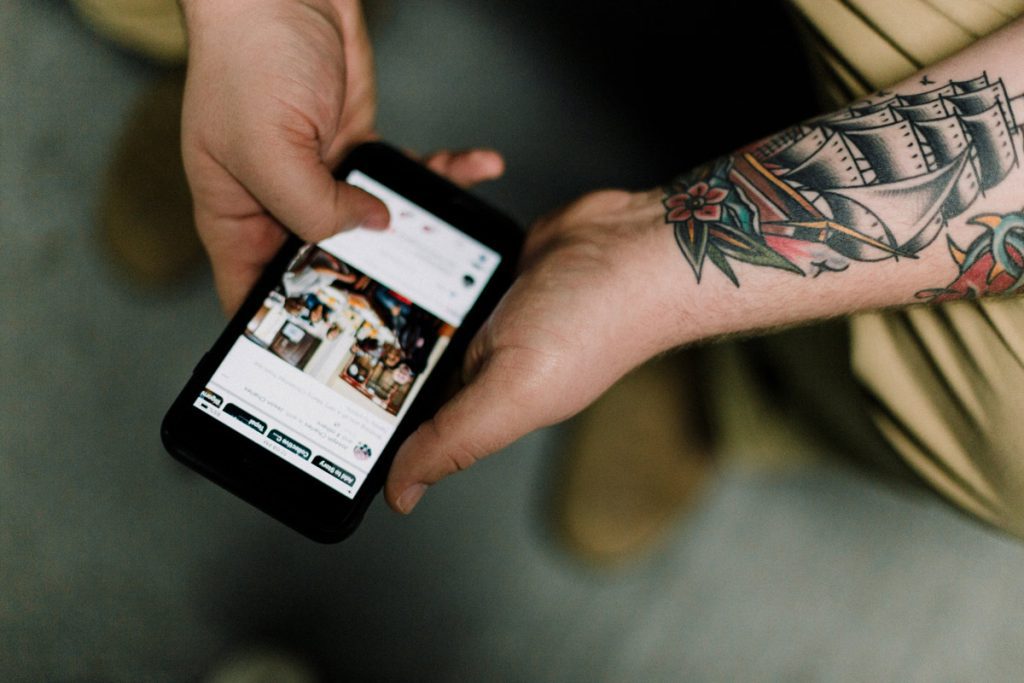Social media has many wonderful uses. It is a place to share meaningful experiences—a place to make connections with like-minded people and feel that you are a part of something bigger.
Despite its usefulness as an amazing tool for human connection, social media has some drawbacks. If not used appropriately, it can negatively impact your mental and physical well-being. With over 90% of 13-to-18-year-olds on social media, the consensus is that hours of scrolling and silly cat videos are here to stay.
So, with all this saturation in our daily lives, how do we know if we should take a break from scrolling? The following are some signs you should watch out for to let you know when it might be time to reduce your consumption. You’ll find a few small changes will save you a lot of trouble in the long run, keeping social media for what it was originally intended to be: silly fun and a way to connect.
Sleep Issues
If you notice you’re having difficulty falling asleep and staying asleep, it’s probably time to put down the phone. A recent study found roughly 60% of participants used their phones in the hour before bed.
The blue light cast from screens has been linked to reduced melatonin production. This can be detrimental to your health, as melatonin is a hormone that helps you fall and stay asleep for the time your body needs to recuperate from the day’s activities.
Not only are devices in the bedroom linked to low melatonin levels and sleep issues, but viewing disaster media and other stressful content can cause a rise in cortisol, the stress hormone.
Try to put the devices down at least an hour before bed to help improve your overall sleep quality. You’ll find that a good night’s sleep will do wonders for health in general. And, if you must watch something before bed, make sure it is light and fluffy, and keep the screen a few feet away from your face.
Anxiety & Depression
Even though social media has many benefits, it also comes with many flaws. Each shared experience is carefully curated for maximum engagement rather than authenticity. Interactions with peers and strangers can deteriorate into cyberbullying. And seeing all the happy, successful lives on other people’s feeds can lead to self-doubt and feelings of isolation. For every benefit of using social media, there is a drawback. No wonder we are seeing increased anxiety and depression in young people today.
It can be hard to separate the truth from reality when we see such meticulously constructed posts from others online. No one is perfect, and life is messy.
If you find yourself suffering from what you see online, it’s time to take a break from social media. It doesn’t have to be permanent or cold turkey. You can limit your consumption by muting your notifications and setting time limits. Make an effort to curate your feeds so you only view content from people who post things that don’t cause you distress.
Losing Track of Time
Another warning sign that you might need a break from social media is if you find yourself frequently losing track of time. Time loss happens when you find yourself taking too many scrolling breaks. Suddenly it’s the end of the day, and you haven’t done much of anything productive.
This bad habit can result in missing deadlines and running late for appointments. You may also notice you have difficulty focusing on tasks both mundane and that you previously enjoyed, preferring instead to scroll on your phone with no real purpose.
If you find yourself aimlessly opening your device only to discover you’ve done nothing for the last hour but watch people dance on TikTok or Instagram has you feeling low about yourself, it may be time for that social media vacation. Be realistic and set reasonable limits, and you’ll feel better mentally and physically with each passing day.
About the Author: Abigail Gardner works as a life coach, aiming to help her clients take greater control of their lives and achieve the goals they want for themselves.
rtor.org and Our Sponsor Laurel House, Inc. Celebrate Pride in June
On June 28, 1969, New York City police raided the Stonewall Inn, a gay nightclub in Greenwich Village, sparking a riot and six days of protests. This incident, known as the Stonewall Uprising, marks a turning point in the gay rights movement, now celebrated as Pride Month in June.
This Pride Month, www.rtor.org and Laurel House affirm their commitment to supporting members of the LGBTQ+ community in their quest for equity and justice, especially in their fight for accessible, safe, health, and mental health care.
www.rtor.org and Laurel House are committed to the advancement of racial equity and social justice, and to making mental health services available to all.
Photo by Priscilla Du Preez on Unsplash
The opinions and views expressed in any guest blog post do not necessarily reflect those of www.rtor.org or its sponsor, Laurel House, Inc. The author and www.rtor.org have no affiliations with any products or services mentioned in the article or linked to therein. Guest Authors may have affiliations to products mentioned or linked to in their author bios.
Recommended for You
- How a Health Cleanse Can Reset Your Body and Mind - April 16, 2025
- The Truth about Relapse in Addiction Recovery - April 14, 2025
- The Power of Peer Support in Mental Health Recovery - April 10, 2025





